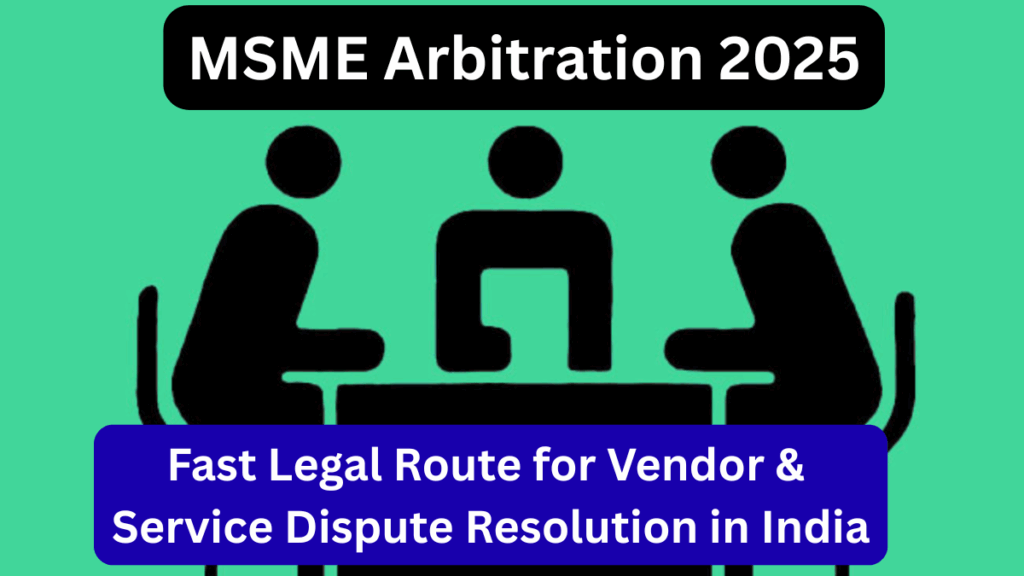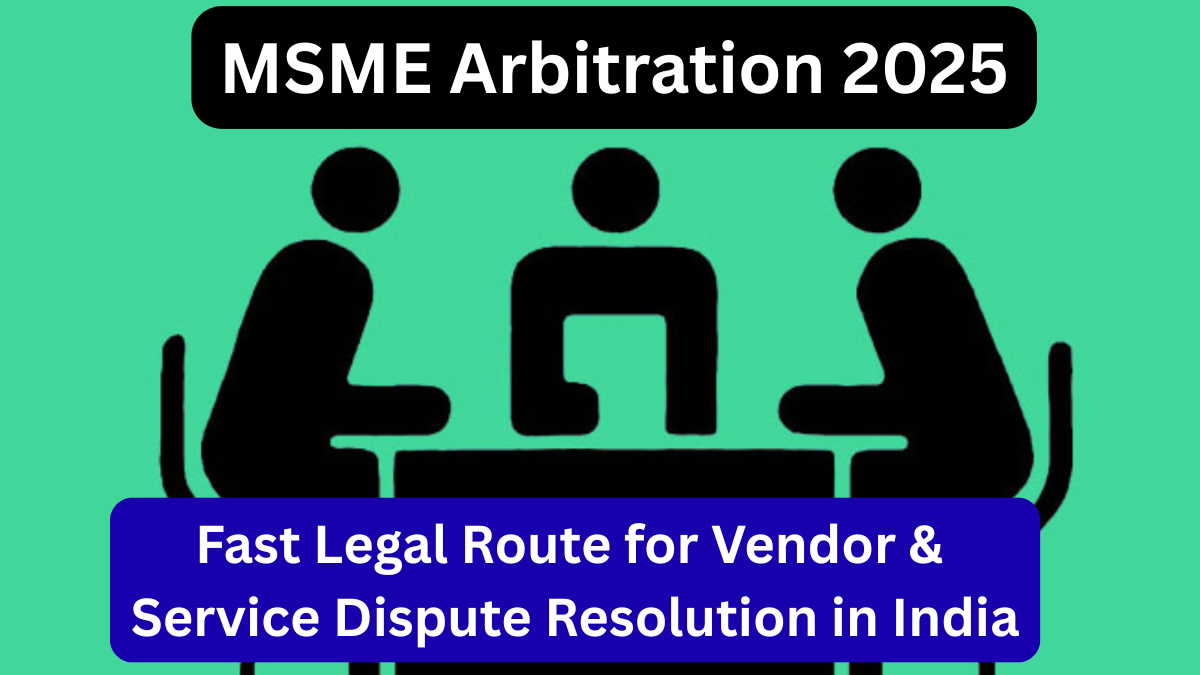In the world of micro, small, and medium enterprises (MSMEs), time is money. Delayed payments or unresolved vendor issues can cripple operations. That’s why MSME Arbitration 2025 is making waves—offering a simplified and fast-track legal process to resolve vendor and service disputes in India without prolonged court battles.
Let’s break it down for you.

Why MSME Arbitration Matters in 2025
MSMEs often face payment delays, delivery disagreements, or service quality issues. Taking such matters to court is expensive and time-consuming. That’s where MSME dispute resolution through arbitration becomes a game changer:
-
Cost-effective: Avoid hefty litigation fees
-
Time-saving: Resolves disputes within months, not years
-
Neutral process: Handled by impartial arbitrators
-
Enforceable decisions: Awards are legally binding and enforceable
What’s New in MSME Arbitration 2025?
The latest updates to the MSME arbitration process aim to improve efficiency and accessibility for small businesses. Here’s a look at what’s changed:
| Feature | Previous Process | MSME Arbitration 2025 Updates |
|---|---|---|
| Resolution Timeline | 1–2 years or more | 90–180 days |
| Arbitration Portal | Offline filing | Centralized digital filing system |
| Panel of Arbitrators | Not MSME-specific | Dedicated panel for MSME disputes |
| Support for Digital Hearings | Limited | Full support for virtual hearings |
Step-by-Step: How the MSME Arbitration Process Works
Navigating the arbitration process is now easier than ever. Here’s how MSMEs can resolve disputes swiftly:
-
Initiate a Claim
File your complaint via the MSME Samadhaan portal or a registered arbitration body. -
Appointment of Arbitrator
A neutral arbitrator is assigned within 15–30 days. -
Virtual Hearings Begin
Attend hearings online, saving travel time and costs. -
Award is Issued
Final award or settlement typically issued within 6 months. -
Enforcement
If the losing party doesn’t comply, the award can be enforced through court.
Benefits of Fast-Track Legal Process for MSMEs
The 2025 update brings real value to small business owners. Here’s how:
-
Quick decisions: Ideal for time-sensitive vendor or service disputes
-
Lower costs: No need for expensive legal teams
-
Confidential: Keeps business matters private
-
Fair and unbiased: Based on merits, not muscle
Key Sectors Benefiting from MSME Arbitration
Some industries are seeing the biggest advantages from the MSME dispute resolution process:
-
Manufacturing units with delayed raw material supplies
-
Service providers with unpaid invoices
-
Technology startups with contract breaches
-
Freelancers or consultants under MSME classification
FAQs
What types of cases can be handled under MSME Arbitration 2025?
Disputes related to unpaid invoices, service disagreements, delivery delays, or breach of vendor contracts—all qualify under MSME dispute resolution.
How is MSME Arbitration different from regular arbitration?
It is a fast-track legal process designed specifically for small businesses, offering quicker timelines, digital hearings, and cost-effective solutions.
Do I need a lawyer to file for MSME arbitration?
While having a lawyer can help, the process is simplified so MSME owners can often handle it independently or with minimal legal aid.
What if the losing party doesn’t comply with the arbitration award?
The award can be legally enforced through the courts, giving it the same power as a court judgment.
Final Thoughts
With the MSME Arbitration 2025 framework in place, India is empowering small businesses with a streamlined and affordable way to resolve conflicts. This fast-track legal process helps MSMEs stay focused on growth instead of getting tangled in lengthy court proceedings.
Whether you’re a vendor, freelancer, or service provider, this could be your shortcut to justice.
Let your voice be heard—fast, fair, and final.
Click here to learn more
